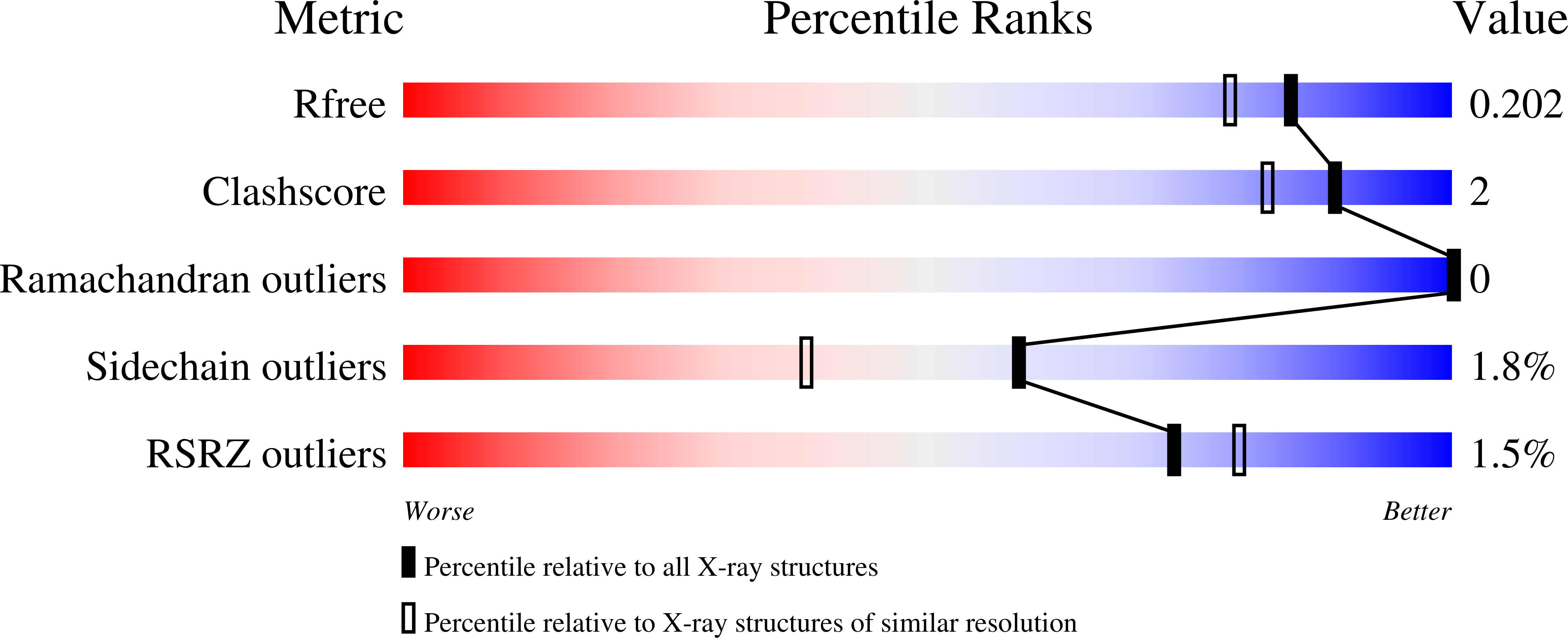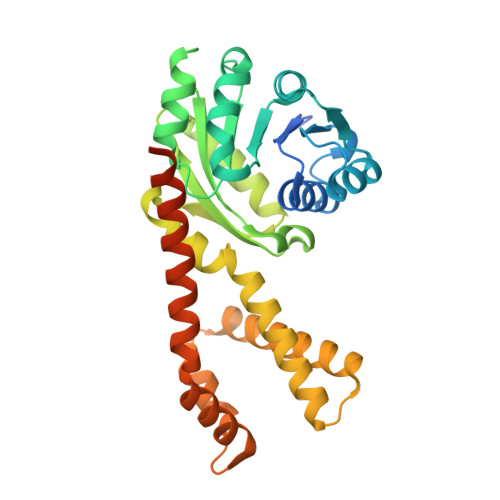Novel Fragment Inhibitors of PYCR1 from Docking-Guided X-ray Crystallography.
Meeks, K.R., Ji, J., Protopopov, M.V., Tarkhanova, O.O., Moroz, Y.S., Tanner, J.J.(2024) J Chem Inf Model 64: 1704-1718
- PubMed: 38411104
- DOI: https://doi.org/10.1021/acs.jcim.3c01879
- Primary Citation of Related Structures:
8TCU, 8TCV, 8TCW, 8TCX, 8TCY, 8TCZ, 8TD0, 8TD1 - PubMed Abstract:
The proline biosynthetic enzyme ¦¤ 1 -pyrroline-5-carboxylate (P5C) reductase 1 (PYCR1) is one of the most consistently upregulated enzymes across multiple cancer types and central to the metabolic rewiring of cancer cells. Herein, we describe a fragment-based, structure-first approach to the discovery of PYCR1 inhibitors. Thirty-seven fragment-like carboxylic acids in the molecular weight range of 143-289 Da were selected from docking and then screened using X-ray crystallography as the primary assay. Strong electron density was observed for eight compounds, corresponding to a crystallographic hit rate of 22%. The fragments are novel compared to existing proline analog inhibitors in that they block both the P5C substrate pocket and the NAD(P)H binding site. Four hits showed inhibition of PYCR1 in kinetic assays, and one has lower apparent IC 50 than the current best proline analog inhibitor. These results show proof-of-concept for our inhibitor discovery approach and provide a basis for fragment-to-lead optimization.
Organizational Affiliation:
Department of Biochemistry, University of Missouri, Columbia, Missouri 65211, United States.


















